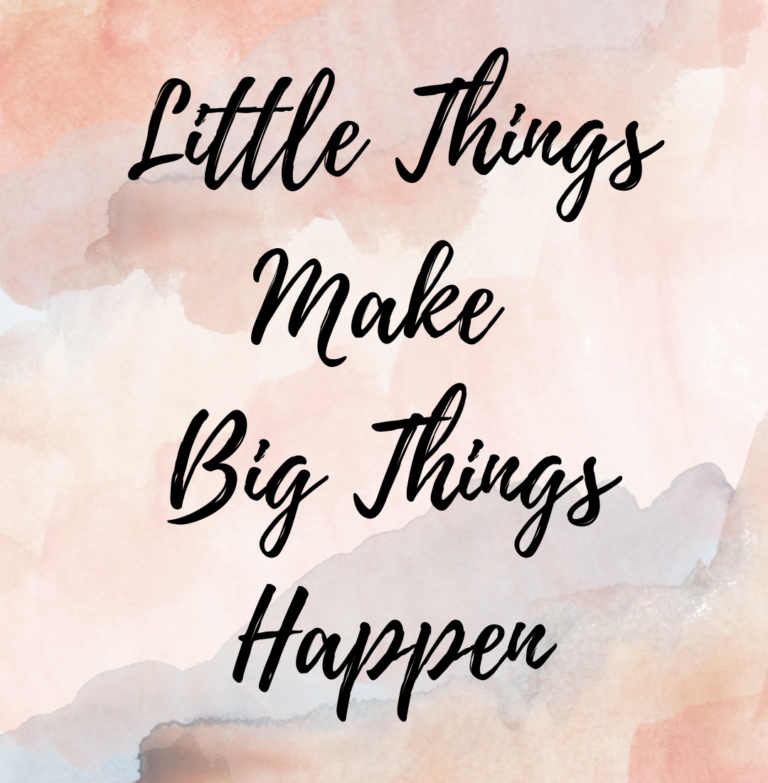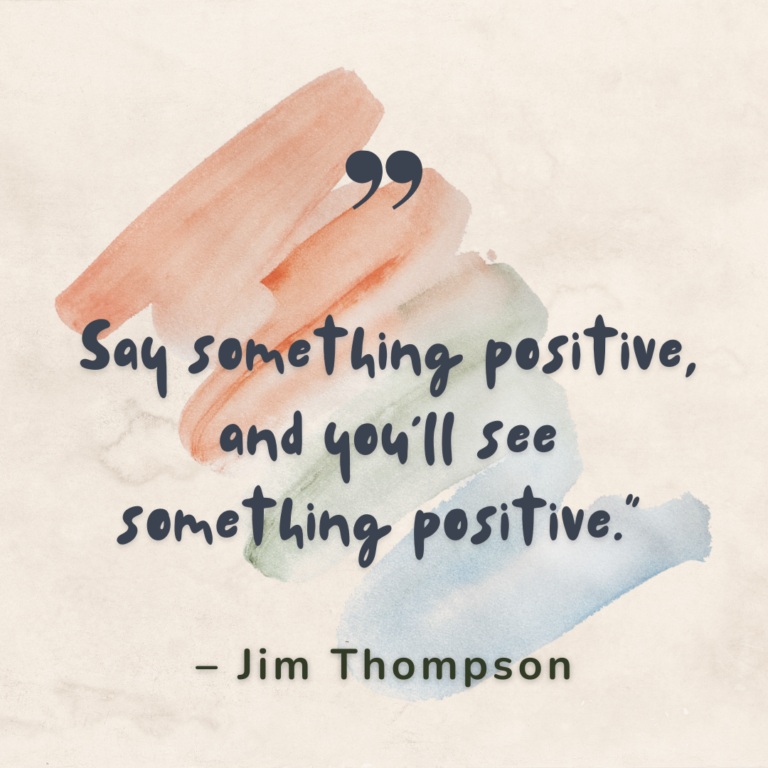One evening, as I entered the park, I found a well-dressed young lady sitting on a bench alone. I smiled and sat beside her. She first looked at me and slowly smiled. We sat beside each other without speaking for quite a long time. She seemed troubled. I gently asked her, ‘Are you ok?’ She looked at me with tears welling in her eyes. I just put my hand on her shoulder and said you can weep all you want; it will make you feel better.
After a little while she said, I am so sad because my husband called me during lunch and shouted saying that I had forgotten to give the napkin and spoon with his tiffin. And what made me feel worse was when he said, “You always do this!” She started sobbing again saying that this was the only time she forgot but he said I always do it!
I let her cry and when she had composed herself suggested that she give him an extra napkin and spoon to keep in his office drawer for such rare times. Then we spoke about common interests and she left saying she was feeling much better.
Understanding The Problem
Sitting there I pondered, do people realize that the statements they use may sound Selfish, Angry, or Doubting and that is what makes the other person sad? Instead of making people sad, why can’t people give up being negative and start looking at the positives in others? If they did it, the world would be a happier place!
Let me explain the above case of the young lady. If you look at the issue objectively, the issue was not something very serious. One could certainly eat with fingers or borrow a spoon from a colleague and use paper or a handkerchief as a napkin. The husband could have come home and just mentioned it instead of screaming at her over the phone. If he did that, I am sure the outcome would be very different.
The husband is selfish as only cares about his comfort. He never thought that his wife may have been preoccupied with some worry that caused her to forget about the spoon and napkin. He was angry, not empathetic. The result of his behaviour caused so much agony to the wife.
Words can hurt and trigger unnecessary pain and unpleasantness, but words can also heal. What words are we choosing?
What Triggers Conflict?
Everyone is human and goes through those tender moments when even something small leads to arguments. After chats with people about what triggers arguments between spouses or between parents and children, I have compiled these common statements that start conflicts:
- “I’m too busy to listen to you right now.”
- “Why can’t you be more like “X” (someone else)?”
- “You’re overreacting all the time.”
- “You’re too emotional or sensitive.”
- “You love your phone more than me.”
- “You always do this.”
- “I’m the one who adjusts all the time.”
- “Why can’t you be rational.”
- “I’m too busy for this right now.”
- “You’re being ridiculous.”
- “I don’t want to hear it.”
- “You’re always comparing me with others.”
- “You never try to understand what I want to say.”
- “I hate you. You’re ruining my life.”
- “You are selfish. I don’t care what you say.”
- “You’re always after me for everything.”
- “You don’t care for my feelings.”
- “You never have time to listen to me.”

Insults or derogatory remarks about someone’s character or abilities, comparisons, accusations, complaints, judgments, and blame always evoke the worst reactions and lead to a breakdown in communication.
Sometimes parents use threats or ultimatums with their children or vice versa and that escalates the situation. Often, one or the other refuses to listen or consider the other person’s perspective, which makes it even worse.
If you stop a while and reflect on any situation when someone was sad because of your behaviour, it would be worthwhile to ask yourself the following three questions:
- Have I been selfish in my approach?
- Have I been angry or accusatory about something quite trivial?
- Have I expressed doubt in the other person’s ability or intentions?
Selfishness, Anger, and Doubting are traits that make you as well as the other person sad. Mutual respect and active listening are necessary in any relationship to prevent unnecessary conflicts.
Let us understand why people become Selfish:
- Selfishness can be a survival mechanism. People may prioritize their own needs over others to ensure their comfort and pleasure.
- They have been raised in families that taught that self-interest is the most important thing.
- The fear of missing out or losing out to others can drive individuals to prioritize personal interests.
- Societal pressures, cultural norms, and media portrayals can also contribute to selfish behaviour.
How to get over selfish behaviour?
- Self-awareness and reflection are the starting point. Recognize and acknowledge the times you were selfish. Such behaviour is not healthy and does not eventually bring you joy.
- Cultivate a sense of gratitude for what you already have. Recognize and value the people in your life who contribute to your happiness and well-being.
- Start listening to others with patience.
- Do something for others even if it is something small.
- Consciously be considerate, compassionate, and generous in your interactions with others.
- Have an accountability partner and seek genuine feedback on your progress. Be patient with your efforts, they will bear fruit.
Reasons why people get angry:
- When they feel threatened or disrespected.
- They experience frustration or disappointment.
- When they feel treated unjustly or unfairly.
- Comparison with others.
- Work pressure and stress, past traumas, unmet desires, or even jealousy.
Dealing With Anger:
Dealing with anger can help improve relationships, reduce stress, and improve overall well-being. Here are a few approaches you can use to learn how to deal with anger:
- The first step is to become aware of when you are feeling angry. Pay attention to physical and emotional signs of anger, such as a faster heartbeat or feeling a surge of energy.
- Practice the pause: When you notice you are getting angry, take a deep breath and pause. This will help you to calm down and respond in a better way.
- Reflect on what triggers the feeling of anger. Is it one of the external events, specific people, or certain situations? Understanding the root causes will help you address the anger issue more effectively.
- Practice assertive communication by expressing your needs and concerns clearly but respectfully.
- Empathize with the other person’s point of view or consider the broader context of the situation. This can help you gain a more balanced perspective and reduce intense anger.
- Practice relaxation exercises, such as deep breathing, meditation, and mindfulness to calm your mind and body when you feel anger rising.
- Physical exercise is a wonderful way to release pent-up energy and reduce anger. Go for a walk, run, or engage in a sport that allows you to release your frustrations.
- Seek professional support from a therapist if nothing works.
Remember, learning to deal with anger takes time and practice. Be patient as you develop new coping strategies and ways to manage your emotions effectively.
Let us examine a few reasons why people doubt:
- Doubting allows people to critically evaluate information, ideas, and beliefs before accepting them as true. However, doubting without proper evidence or reasoning can cause strained relationships.
- Negative experiences or instances of being deceived can make individuals more cautious and disbelieving and lacking trust. They might doubt others’ intentions or information for fear of being deceived or hurt again.
- Pre-existing biases or prejudices can cause people to doubt others based on factors such as their race, gender, or social standing.
- When people feel threatened by others’ success or achievements, they may doubt their abilities or question the legitimacy of their accomplishments out of envy or a desire to feel superior.
- Some individuals have doubts about themselves or close ones out of fear of making mistakes or being proven wrong in their assessment of their own or others’ capabilities.
Doubts can help people make informed decisions, develop critical thinking skills, and remain open to new perspectives. However, trust is the foundation of all relationships. Excessive, and unfounded doubts can hinder relationships, trust, and collaboration.
You can follow these steps to stop doubting others:
- Start by trying to understand the reasons behind your doubts. Is it based on past experiences, fear, or lack of trust? Identifying the root cause can help you address it more effectively.
- Question the validity of your doubts. Consider whether they are based on concrete evidence or mere speculation. Are there any alternative explanations for the situation?
- Put yourself in the shoes of the person you are doubting. Try to understand their perspective, motivations, and intentions. This can help you develop a more compassionate view, reducing your doubts.
- If you have concerns, talk openly with the person involved. Share your doubts and seek clarification. Honest communication can resolve misunderstandings and build trust.
- Instead of relying on your doubts, observe the other person’s actions and behaviours. Judge them based on their actions rather than assuming negative intentions or outcomes.
- Be open-minded and challenge your biases or prejudices about the person or situation.
- Reflect on your insecurities and work on your self-confidence.
- Seek support from a close friend, relative, or professional who can help you see a unique perspective and guide you through the process of overcoming doubts.

What should you do to make someone happy?
Be patient with yourself. It takes time to let go of your selfishness, anger, and doubting nature. Stop blaming others and complaining about everything or being judgemental about everyone’s actions. These are all negative traits.
It is easy to spoil relationships but so hard to mend them. Let go of negativity and start looking at the positives in the other person. Be loving, this will change your perspective and behaviour.
Isn’t it better to make someone happy with your behaviour?
Just try it! Change your words and it will change your behaviour. Take that leap of faith. You CAN do it!
In the process, you will be a happier person and bring joy to all you interact with – be it family, friends, or colleagues.




